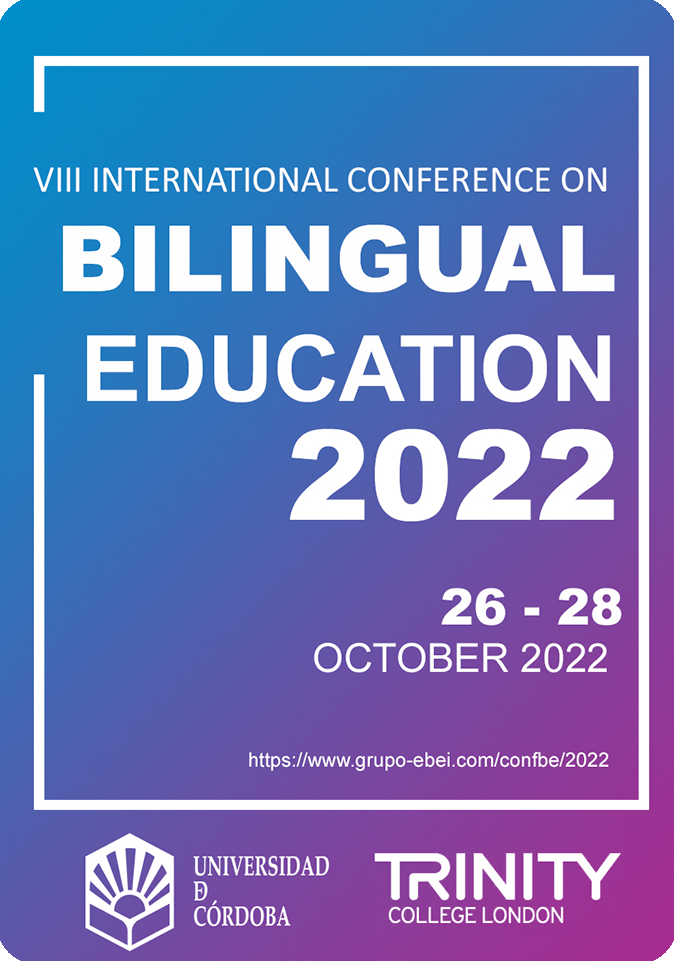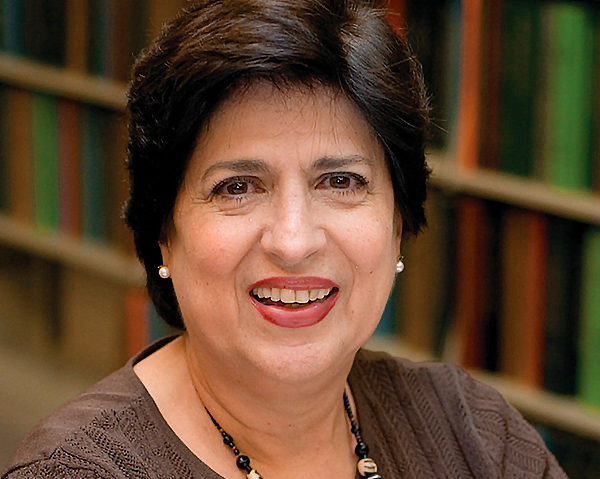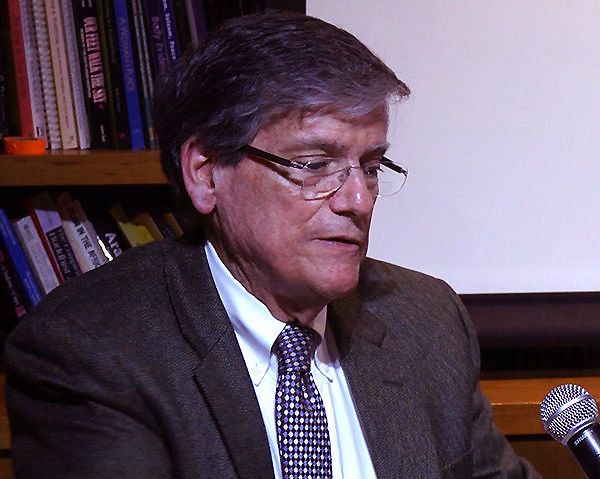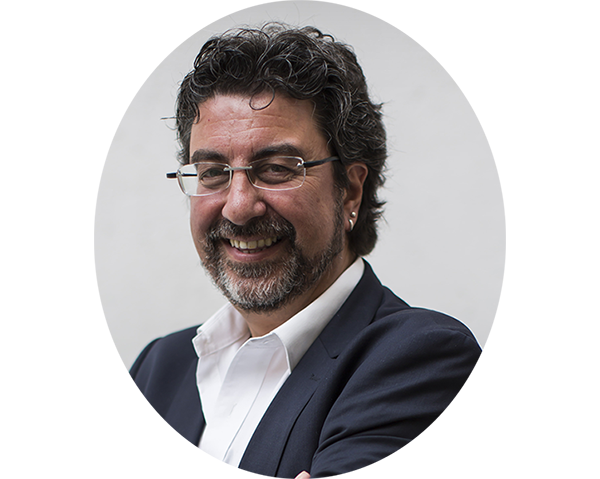We recover our face-to-face essence.
The 8th International Conference on Bilingual Education will be held face-to-face again. You may read all the details below.
The 8th International Conference on Bilingual Education will be held face-to-face again. You may read all the details below.


We maintain the essence of past editions, returning to the live participation structure through face-to-face communications, scientific-training dialogues, pedagogical conferences and training workshops. We added the possibility of sending communications in video or text format for those who cannot travel to Córdoba on the dates of the Congress.

The University of Córdoba is pleased to organize and host in its Rectorate the 8th International Conference on Bilingual Education. This Conference has already become a national and international reference in the field, and involves a great number of renowned and prestigious experts and participants.
Now more than ever, the celebration of this Conference arises as an unavoidable event for the international scientific and educational community. National and international organisations (UNESCO, OECD, the Council of Europe, the Spanish Ministry of Education, and the Regional Government of Andalucía – Junta de Andalucía, among others) highlight the vital importance of bilingual education, both for the understanding of peoples and societies, and for the commitment to peaceful coexistence.
From the University of Córdoba, together with the rest of the organizing and collaborating institutions, we are convinced that this 8th International Conference on Bilingual Education will mean, once again, a shared space to exchange experiences and research towards the development of bilingual education through action, as well as towards the dissemination of its results.
As Rector of the University of Cordoba, I am honoured to support this initiative and encourage the Scientific Committee and the Organizing Committee of this Conference to continue with this important work. Thus, I would like to take this opportunity to invite participants, speakers, collaborators and attendees to continue making this VIII Congress a place for meeting, reflection and innovation in a way of educating that is highly relevant on the international arena, and an absolute priority for those of us who are devoted to the education of young people in this complex 21st century. Let these words, then, be a warm welcome to the participants in this VIII International Conference on Bilingual Education.
Be, therefore, these words a warm welcome to the participants of this 4th International Conference on Bilingual Education. The University of Córdoba is also your house: feel welcome and let us know the conclusions derived from this conference.
The Organising Committee of the Conference is honoured to confirm the holding of different plenary sessions by renowned international experts. The different sessions will be published on the Virtual Platform of the Congress and will be available to all participants during the days of the Conference.

City University of New York (USA)

City University of New York (USA)

University of Edinburgh (UK)
Delete italics if it’s too long. Edit as you think fit.
Do is an international expert in the field of CLIL (Content and Language Integrated Learning) as a language teacher (French, Russian and English) in a wide range of schools in the UK and France, and as an academic, working and researching ways of improving pupils’ experiences in classrooms where other languages are used as a means of learning. As an early pioneer of the CLIL, working with bilingual teachers, she developed the CLIL 4Cs framework and the Language Triptych – now adopted and adapted globally to guide and plan pedagogical approaches. Do strives to give teachers and their students confidence in developing conditions for deeper learning and to ensure that learning is spatially designed, inclusive yet cognitively challenging – built on linguistic progression – and interculturally connected. At the University of Aberdeen (2008-2017), as Dean of the Faculty of Education and Music she was a founding member of the Graz Group – a transnational, ECML-funded research team- involved in developing an inclusive PluriLiteracies approach to Teaching for Deeper Learning (PTDL).Throughout her career, Do has focused on “shared learning” and technology-enabled spaces that allow all learners to connect with other sites of learning, from the most local to the most global. Her interests include spatial awareness to emphasise how space (inside, outside and across physical boundaries) influences pupils’ achievement and self-worth. Currently at the University of Edinburgh (2017-) as Professor in Language Education and Classroom Pedagogies – she focuses on inclusive pluriliteracies education and spatial literacies where she directs the Scottish Alliance. Her work is based on a very simple principle: educators, practitioners and learners are experts; it is researchers who must “own” their practices, be digitally connected and collaboratively construct learning spaces to achieve the optimal conditions for deeper learning. Above all, she believes that language is our greatest learning (and teaching) tool.

Universidad Autónoma de Madrid
Ana Llinares is professor in the English department at the Universidad Autónoma de Madrid, Spain. She teaches second language acquisition and content and language integrated learning (CLIL), both at undergraduate and postgraduate levels. She coordinates the UAM-CLIL research group (http://www.uam-clil.org) and has published widely on CLIL at primary and secondary school levels, mainly applying systemic functional linguistic models. She has co-authored the book The Roles of Language in CLIL, published by Cambridge University Press, and has co-edited the volume Applied Linguistics Perspectives on CLIL, published by John Benjamins. She has recently co-edited the Special Issue ‘Systemic Functional Linguistics: A social-semiotic approach to content and language integrated learning in bilingual/multilingual education’ in the International Journal of Bilingual Education and Bilingualism.
Title: Why integrating the assessment of content and language is crucial to the success of bilingual education. And how to do it!
Abstract: Bilingual education & CLIL programmes are interdisciplinary by definition and require teachers from different subject areas, linguistic and non-linguistic, to work together across a range of areas if the programmes are to be successful. One of the most important of these areas is assessmentand in particular, formative assessment or assessment for learning. In the MEFP-British Council Bilingual Education Programme we are working with the UAM-CLIL Research group to look at how teachers from different subject areas evaluate the quality of their learners work and how we can create more equitable assessment practices shared by English teachers and content teachers teaching their subjects in English. In this talk we will look at why the integrated assessment of content and language is crucial to successful learning outcomes in bilingual and CLIL programmes and how teachers can start working together on assessment in their schools.

Cambridge English
David Bradshaw has worked for Cambridge English for eight years as Senior Assessment Services Manager in the Madrid office. Prior to that he worked as Head of Modern Languages in different bilingual schools in Madrid. He has given presentations in various conferences both in Spain and around Europe and has published articles on classroom management issues and motivation, and also on Speaking assessment. His key interests are developing and assessing productive skills and discourse analysis.
10 points for Gryffindor? – Taking gamification to the next level
Gamification is often associated with giving points to different teams as seen in the Harry Potter films. However, it can be much more than this, drawing from how students react to the challenges they face when playing complex games.
This session starts by looking at different interpretations of gamification, developing from the idea of awarding points for actions towards a more psychological approach to gamification, where the cognitive processes generated in the brain while playing particularly video games can be to some extent replicated in the learning process. We will look at the sort of strategies gamers apply when playing their games, such as trial and error, sharing strategies and so on in order to succeed in their games, and how this lowers the affective filter and can create flow. We will also see how we can take this into the classroom, with or without technology. We will also explore the difference between gamification and games-based learning.
Finally, we will look at a couple of examples of game-based learning, how they are developed and how they work with students. The examples we look at will be B1 Exam Lift, a mobile app, and the Minecraft game developed by Cambridge.

British Council
Mark is Head of English Programmes for the British Council in Spain with responsibility for the British Council’s initiatives in support of the teaching and learning of English. In recent years this work has focused on multilingual and bilingual education and he manages the British Council’s partnership with the Spanish Ministry of Education and Regional Governments on the national Bilingual Education Programme as well as British Council support for other Regional Government initiatives. He is also involved in developing British Council work in Europe in relation to multilingual & bilingual education. He was previously an English teacher and a teacher educator, working with Spanish teachers of English for many years.
Title: Why integrating the assessment of content and language is crucial to the success of bilingual education. And how to do it!
Abstract: Bilingual education & CLIL programmes are interdisciplinary by definition and require teachers from different subject areas, linguistic and non-linguistic, to work together across a range of areas if the programmes are to be successful. One of the most important of these areas is assessmentand in particular, formative assessment or assessment for learning. In the MEFP-British Council Bilingual Education Programme we are working with the UAM-CLIL Research group to look at how teachers from different subject areas evaluate the quality of their learners work and how we can create more equitable assessment practices shared by English teachers and content teachers teaching their subjects in English. In this talk we will look at why the integrated assessment of content and language is crucial to successful learning outcomes in bilingual and CLIL programmes and how teachers can start working together on assessment in their schools.

Trinity Spain-Portugal
Aidan O’Toole is director of Spainwise Teacher Training & Recruitment, a Trinity-accredited teacher training centre here in Cordoba, which offers online and face-to-face specialist qualifications for teachers of English as a second language. He is also the owner of Blue Door, a prestigious language academy which provides English language classes both at their city centre premises and at Colegio La Salle Córdoba. Previously Aidan has been an examiner and an inspector for Trinity College London. He was also President of FECEI, the National Federation of Private Language Schools in Spain, from 2014-2019.
Title: Assessed Performances in English – A Watershed for Teaching Young Learners
Abstract:
Many second-level students now leave school with international qualifications in English, and the introduction of external assessment into primary classes in more recent years has led to even earlier recognition of young learners’ achievements. These first qualifications not only motivate younger learners from an early age, but reassure parents that their children are on the path to higher level qualifications in the future. Parents of our pre-primary students, however, often have to wait longer to see the results of their children’s efforts.
In this session, we will look at how pre-primary learners can also have their efforts assessed externally and their achievements rewarded. Although too young for formal examinations, with Trinity Stars Awards, 3- to 6-year-olds can prepare performances in English, have them assessed externally and receive medals and certificates in recognition of their efforts and achievements.
We will show how teachers and schools can integrate preparation for these performances into their existing syllabuses, and we will look at the hands-on support available for the introduction of Trinity Stars Awards into classes for young learners.
With Trinity Stars Awards, you will discover that it’s never too early for school-goers to start their language-learning journey and to have achievement recognised.
We provide you with all the information about the registration procedure and the requirements for participation in the Conference.